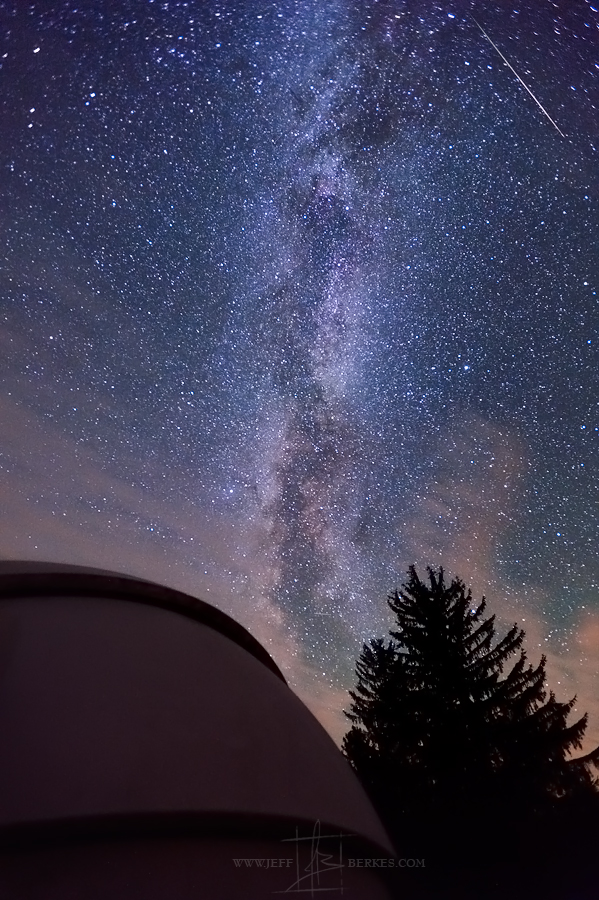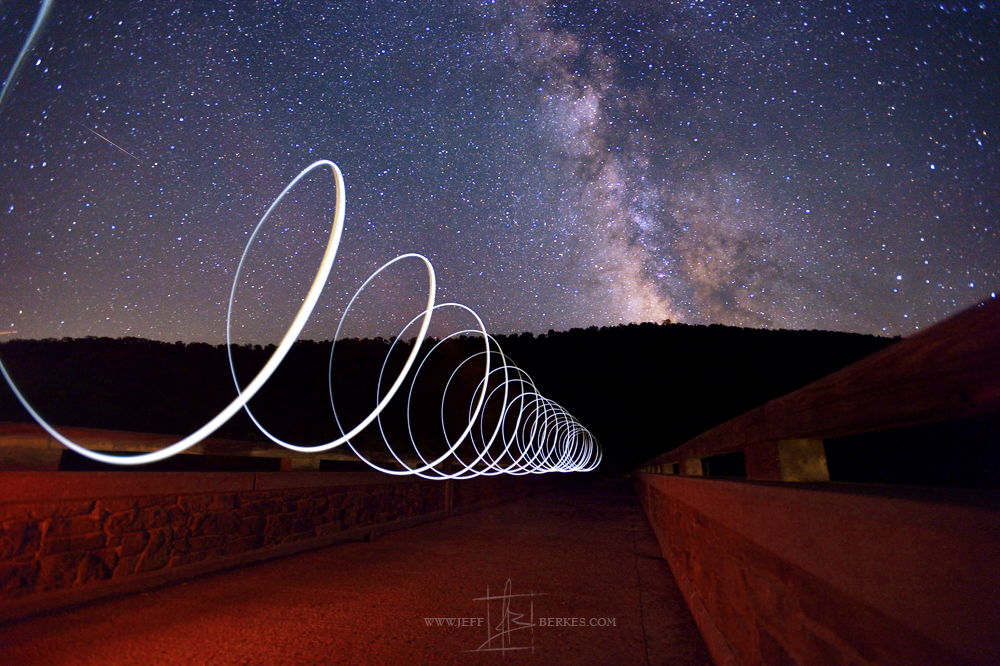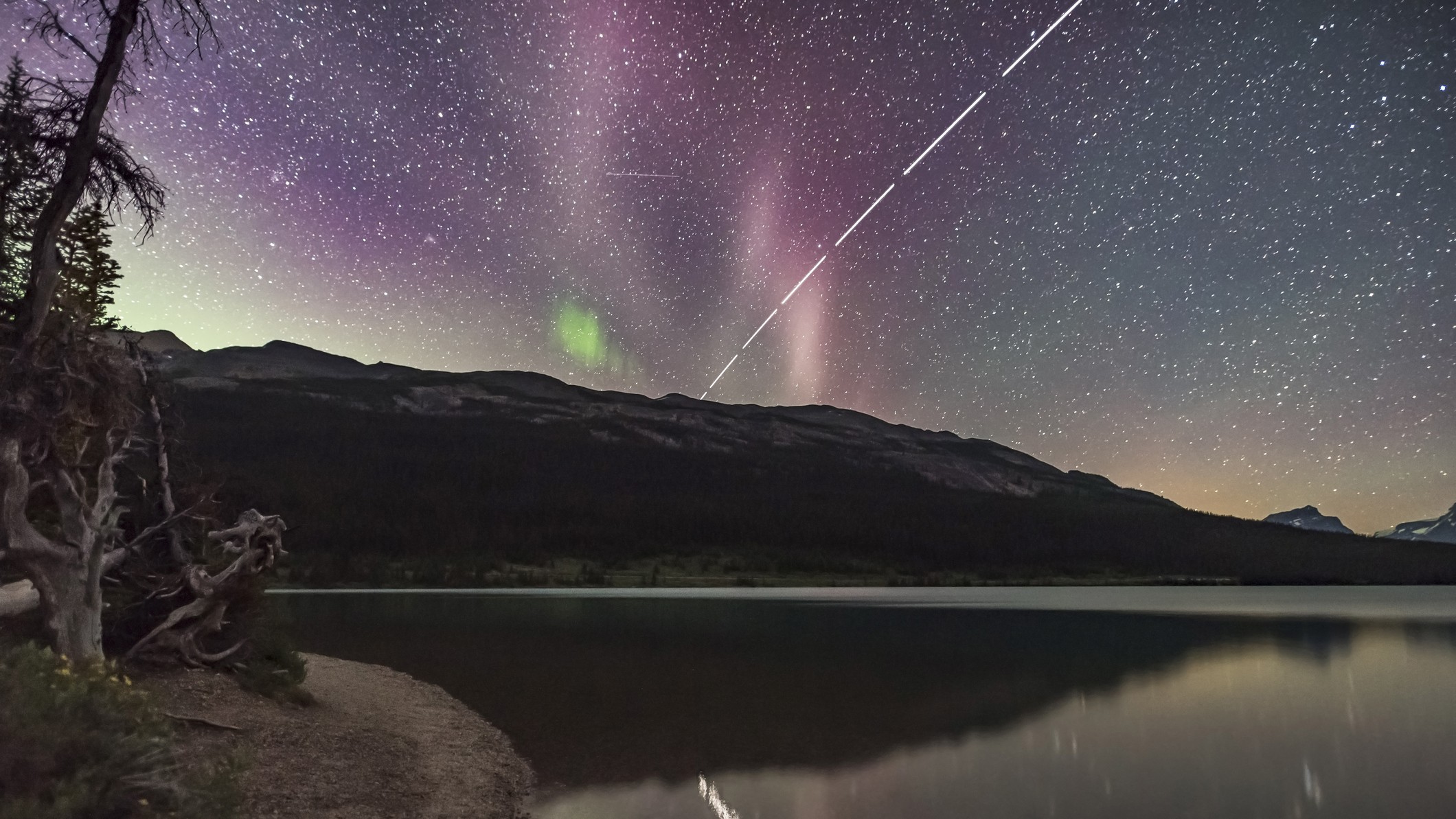Early Perseid Meteors Wow 'Milky Way and Meteor Man' (Photos)

Determined to capture the most spectacular photos of the Perseid meteors, veteran astrophotographer Jeff Berkes headed to the darkest hills in Pennsylvania a week before the meteor shower's peak, which occurs tonight (Aug. 11).
Berkes, who goes by the nickname "Milky Way and Meteor Man," has been taking landscape astrophotography pictures since the 1990s. And he wasn't going to let the weather get in the way of the perfect shot.
The Perseid meteor shower is an annual display of celestial fireworks that peaks each year in August, when Earth passes through a stream of dust from Comet 109P/Swift-Tuttle. Late tonight and early Friday, the Perseids will be at their peak, with NASA scientists predicting up to 200 meteors per hour for observers with super-dark-sky views away from city lights. But the bright moon, which does not set until around 1 a.m., can limit the number of meteors seen. [Perseid Meteor Shower 2016: How and When to See It]
To get the best view of the Perseid meteor shower, Berkes headed to the state parks of northern Pennsylvania before the shower's peak. Berkes, who hosts night-sky photography workshops, brought along a group of amateur astrophotographers eager to learn how to best photograph some Perseid meteors.
The crew first set out to Lyman Run State Park on Aug. 6. "I chose this location and the date on a gamble that the weather would be bad during the peak this year," Berkes told Space.com in an email. "I did that because I know this shower is a good one, and the rates are decent from August 5 to August 15." At Lyman Run, Berkes captured a stunning view of a meteor shooting across the sky above a walkway with the Milky Way sparkling in the background.
Berkes and his group moved on to Cherry Spring State Park the next night. This area is known for having the darkest skies east of the Mississippi River, making it one of the best spots to see the night sky.
"We were rewarded with over 100 meteor sightings," Berkes wrote. "On the final night, while walking back to our cars, the biggest meteor of the weekend crossed the sky in front of us — much longer than the width of the Big Dipper." You can see more of Berkes' amazing night-sky views on his website, Jeff Berkes Photography.
Breaking space news, the latest updates on rocket launches, skywatching events and more!
If bright city lights or bad weather conditions spoil your view of the Perseid meteor shower, you can watch it online tonight on Space.com in a free webcast provided by the Slooh Community Observatory. You can also see our full rundown of Perseid meteor shower webcasts here.
Editor's note: If you have an amazing night sky photo you'd like to share for a possible story or image gallery, please contact managing editor Tariq Malik at spacephotos@space.com.
Email Hanneke Weitering at hweitering@space.com or follow her @hannekescience. Follow us @Spacedotcom, Facebookand Google+. Original article on Space.com.

Hanneke Weitering is a multimedia journalist in the Pacific Northwest reporting on the future of aviation at FutureFlight.aero and Aviation International News and was previously the Editor for Spaceflight and Astronomy news here at Space.com. As an editor with over 10 years of experience in science journalism she has previously written for Scholastic Classroom Magazines, MedPage Today and The Joint Institute for Computational Sciences at Oak Ridge National Laboratory. After studying physics at the University of Tennessee in her hometown of Knoxville, she earned her graduate degree in Science, Health and Environmental Reporting (SHERP) from New York University. Hanneke joined the Space.com team in 2016 as a staff writer and producer, covering topics including spaceflight and astronomy. She currently lives in Seattle, home of the Space Needle, with her cat and two snakes. In her spare time, Hanneke enjoys exploring the Rocky Mountains, basking in nature and looking for dark skies to gaze at the cosmos.

